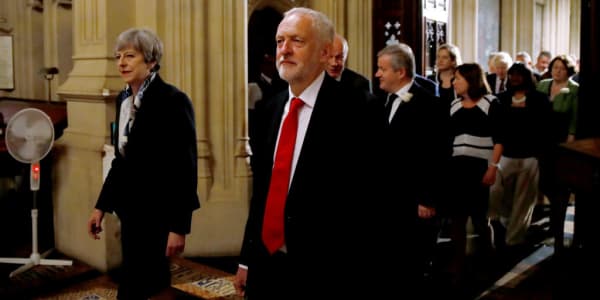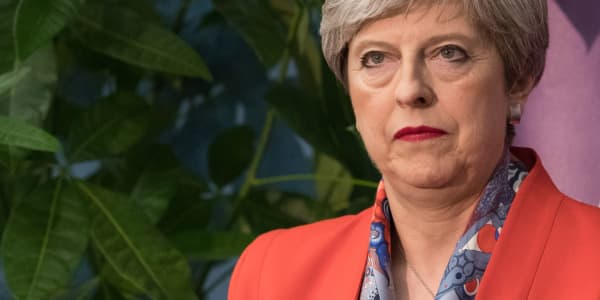Despite being located in a neighboring county to London, trains from the capital to the seaside town of Clacton-on-Sea leave only once per hour.
The town, with its sandcastles and slot machines, appears innocently provincial to those unacquainted with U.K. politics. But, its parliamentary constituency of Clacton made history in 2014 for being the first to elect a member of the pro-Brexit U.K. Independence Party (UKIP) to a seat in the House of Commons. UKIP has – rightly or wrongly – been compared to the Tea Party in the U.S. and its most notable member is former leader Nigel Farage.
Having arguably achieved its endgame after the Brexit vote last June, UKIP's remarkable trajectory from single-issue pressure group to bona fide political movement representing the economically disenfranchised has lost its sparkle. The Financial Times' poll of polls currently places the party at a meager 4 percent ahead of the General Election on Thursday, peaking at just under 20 percent a year ago.
Some say that UKIP is in the midst of an identity crisis. Danielle Haralambous of the Economist Intelligence Unit told CNBC via telephone that UKIP "hasn't been successful in broadening out," citing the party's failure to win over voters in by-elections earlier this year as evidence for this.
Why vote for a party whose job is done? UKIP justified its existence to CNBC via e-mail by repeating its metaphor that it is "vital to keep the government's feet to the fire" ahead of challenging Brexit negotiations.
In its 2017 election manifesto, the party touts traditional populist fodder of reducing taxes for lower and middle income citizens, as well as corporate tax. It also advocates withdrawing the U.K. from its global position by, for example, decoupling from the Paris climate change accord and not intervening in the Middle East. Other key tenets of UKIP's stance include banning women from wearing the burqa and niqab in public, reducing net migration in the U.K. to zero and declaring June 23 – the date of last year's EU referendum – U.K. independence day.
"UKIP believes in localism" the party proclaims in its manifesto, and this, it appears, is integral to winning a larger share of the vote come Thursday. But locals that CNBC spoke to in Clacton-on-Sea said that they were voting Conservative.
These voters explained the electoral success of Douglas Carswell – the politician who was voted to represent the constituency first for the Conservatives, then for UKIP, and finally as an independent post-Brexit – as being successful because he was "very good for the local area." They said that Paul Oakley, the constituency's new UKIP candidate, had not yet contributed.
Carswell is not standing this time around, telling the BBC after UKIP's dismal performance in local elections in May that he was the party's "first and last member of parliament."
The Conservative campaign team in Clacton, representing candidate and local Giles Watling, told CNBC that the area's support for leaving the EU was largely due to hoped-for economic benefits. One such policy Watling is putting forward is slashing travel time to London through improved infrastructure, an idea that could promote the area as being commuter-friendly and bring about economic rejuvenation. The potential to bring prosperity is particularly resonant as within the constituency of Clacton lies Jaywick, an area which the government has deemed the most deprived in England.
UKIP's manifesto pushes the economic benefits of leaving the EU, describing the move as a "win-win situation for U.K. trade." It boasts that "countries are already queuing up to make trade deals with Britain," including the U.S.
Oakley, when questioned by CNBC via telephone on his party's outlying goals, said that beyond Brexit negotiations, implementing a proportional representation voting system and abolishing the House of Lords were on the party's hit list.
These ideological concerns appear more tied up with the party's grievances in failing to win power due to the U.K.'s first-past-the-post voting system rather than its voters' priorities – and are a step away from the party's pound sign logo.
Alex Greer of Open Europe agrees, saying that UKIP "needs to be addressing policies of genuine concern to people," of which the economy is paramount. But, the "things that lead their pitch are not their voters' main concerns." Haralambous added that "Brexiteers trust the Conservative government to carry out Brexit."
UKIP, if polls are to believed, could fizzle away to insignificance by the end of this week. But Oakley told CNBC that currently, there has "never been so much press interest."




